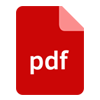Peace, Democracy and Human Rights in Asia
September 10–11, 2009, Prague
The conference "Peace, Democracy and Human Rights in Asia" will take place in Prague on September 10–11, 2009.
The participants of the conference will focus on the implementation of the Universal Declaration of Human Rights with special emphasis on freedom of thought, conscience and religion; on protection of cultural rights of religious and ethnic minorities including language, spiritual traditions and customs; on right to education as one of the most strongly contested in the field of minority rights and last but not least on environmental rights and their linkage with human rights protection.
The invitees include Nobel Peace Prize Laureates such as His Holiness the Dalai Lama, Frederik Willem de Klerk, Jody Williams and Paula Dobriansky, Foreign policy specialist and former Under-Secretary of State for Democracy and Global Affairs, Ramin Jahanbegloo,Iranian dissident and intellectual, Zoya Phan, International Coordinator at the Burma Campaign UK, Maran Turner, Executive Director of Freedom Now, Khin Ohmar, Former Burmese student activist and founding member of the Women’s League of Burma, Karel Kovanda, Deputy Director-General for External Relations of the European Commission, Petr Bratský, Member of Parliament of the Czech Republic,Doan Viet Hoat, Civil rights and human rights activist and dissident from Vietnam, Robert Menard, FormerSecretary-General of Reporters Without Borders and others.
The overall theme of the conference is Peace, Democracy and Human Rights in Asia.
The goal of the conference is twofold: To share experiences and debate the recent and current developments regarding the aforementioned themes in parts of Asia, and to agree on concrete proposals and ways to effectively address these issues.
Different aspects of the main themes will be discussed in several topical panels.
Religious, Cultural and Indigenous Rights:
Every place in the world has a rich cultural heritage. This heritage could be considered a body of wisdom including tools for survival and traditions that have been accumulated over millenniums. This distillate of generations fuels the perspectives and innovations of our modern day while reminding us who we are and where we come from. The freedom to choose one's path towards fulfillment is preserved in the Universal Declaration of Human Rights (UDHR) and is fundamental to the pursuit of happiness desired by all human beings. The full development of the personality includes the right to explore one's beliefs and different concepts of how life should be lived. The freedom to explore these fundamental rights needs to be defended. The right to a nationality and the freedom to change it are protected by the UDHR. The freedom of belief and religion are also protected in the UDHR. Cultural heritage needs to be preserved, not only in the interest of honoring the past, but also in the interest of having a future. How is it possible to implement and protect these human rights? How can education of cultural heritage, including language, religion, tradition and tolerance become central and fundamental? What are the steps to ensure that there is a just world for us to develop and live in?
Inclusive Government Versus Exclusive Governance:
The role of government should be for the people and representative of the people that it governs. If people are denied equality under the law or representation in government then there is a fundamental injustice. Free speech, media, the rights to assemble, worship, and dissent are all basic liberties that help to balance the power structure found in society. Violence, fear, and an imbalanced judicial system guarantee a hegemonic power structure which is intrinsically not representative of the people. The right to equality before the law, to fair hearings, from arbitrary arrest, and the freedom from degrading treatment and torture are protected under the Universal Declaration of Human Rights. People under threat in the circumstances of illegitimate governance are anyone harboring an alternative political, religious, or sociological perspective. A robust civil society is necessary for an inclusive, just future. It is diversity that fuels innovation. Systematic repression of contrasting views and the way in which conflict is managed within a society can create an unsustainable environment that will not nourish the people being governed and in turn destabilize the government and society itself. Tolerance must be a fundamental part of education. What is the most effective way to resist an oppressive regime? How can we transform closed perspectives to embrace our diversity, which can fuel innovation? How can we prevent the systematic repression of contrasting views? How can we change the way in which conflict is perceived within a given society and create a sustainable environment that will nourish the people being governed? How can genuine tolerance and respect be achieved and preserved?
Implementing Democracy, Sustainable Development and Education:
Empowerment through inclusion and education are fundamental rights protected by the Universal Declaration of Human Rights (UDHR). Social equality, innovation, and justice harbored under a democratic social structure are the essential ingredients for progress. Status is a construct that is not entirely merit based. Status can be intertwined with the political objectives of an oppressive government or unsustainable economic development strategy. By enhancing the open, democratic aspects of a society the rights and powers of each individual should be enhanced and cultivated as a great resource. Justice, equality, and sustainability are factors that harmonize when in balance; which is achieved through insightful development and education. Empowerment through the education of human rights is paramount to the future of our rights. What is the most effective way to achieve sustainable economic and social development? How are the rights of indigenous people, women and children able to be protected? And can education bridge the gap between status groups?


